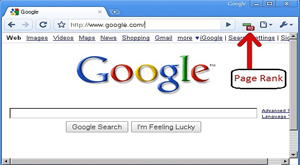
SEO Predictions 2021
I was browsing one of the better SEO groups called “SEO Signals Lab” run by Steven Kang. He asked us to give our predictions for where SEO will be headed in the future.
So I really thought about it and came up with 7 predictions I think have a high probability of becoming reality. Most of these aren’t new developments, but rather a prediction that existing trends in these areas will continue. I also doubt these points will come to be anytime soon. As in finance, it’s not generally advisable to try to time the market. But knowing in what direction it will go long term, that’s where the money is:
1- Personalization and Rank Tracking
 Search Engine Result Pages will continue to become more and more personalized, lowering the value of rank tracking.
Search Engine Result Pages will continue to become more and more personalized, lowering the value of rank tracking.
There still will be value in understanding what ranks if a keyword is searched for by a new user on a new machine from a particular area, but it will have less and less correlation with how many clicks a web property gets, as user intent, Geo location, current trends and more will increase in weight. This will have a dual benefit to google: 1- the possibility of greater user satisfaction and 2- protection of their algorithm from those of us trying to dissect it in order to give one website a leg up over another.
2- User Satisfaction Signals
Google has been making an effort to provide users with ‘satisfying’ search results, but their efforts feel primitive. So I predict user satisfaction signaling will continue to advance.
Right now Google incorporates signals such as CTR, bounce rate, time on site, etc to gauge satisfaction. But I see them becoming much more sophisticated in understanding user intent and thereby satisfaction as they continue to acquire more and more data and are better able to process it into meaningful signals that can be reliably incorporate into the algorithms.
3- Google Continues to Win it's War on SEOs
Google has consistently been undermining SEO efforts. In the end, Google’s aims are generally contrary to the aims of most SEOs. As such, google will continue to make most SEO efforts ineffective if not intentionally counter productive.
This will open new opportunities to those who think with high levels of abstraction. But it will also make it so that the average business will find less and less ROI in hiring the average SEO consultant. The Pareto distribution in effective SEO consultants will continue becoming more and more lopsided and overall industry cost effectiveness will continue to go down. This is something in Google’s long term interest. They want webmasters budgeting for PPC, not SEO.
4- From SEO to Digital Marketing Cybernetics
 Hiring an ‘SEO Professional’ will continue to make less and less sense.
Hiring an ‘SEO Professional’ will continue to make less and less sense.
In the place of SEOs who will get crushed we will see more and more the rise of digital marketing professionals who have a holistic understanding of ‘web presence effectiveness’. Instead of SEO we’ll see more consolidated digital marketing campaigns that incorporate CRO, technical SEO, reputation management, how servers/DNS works, email marketing, user funnels, etc.
In the end, many of the things that benefit the user experience will also benefit SEO, PPC, CRO and more.
5- SEO Will no Longer be a Place to Hide Bad Business Practices
SEO will be less and less a game apart from creating a digital based business and will be more and more similar to say, Business Development and Product Management.
For too long SEO has been a way for ineffective businesses to stay afloat using algorithm hacks. As the market becomes more efficient (for everyone) and transparent (for Google), the best will conquer and consolidate while the rest will wither. The winner take all economy of the web will continue to accelerate.
6- Moving Away from the Original PR Algorithm
 Google’s original PR system continues to dominate even after becoming over 20 years old. The company has made several efforts at moving away from it. As we have seen with GMB, Google is seeking to ‘understand’ the web more and we will see these elements weighed more within general SERPs.
Google’s original PR system continues to dominate even after becoming over 20 years old. The company has made several efforts at moving away from it. As we have seen with GMB, Google is seeking to ‘understand’ the web more and we will see these elements weighed more within general SERPs.
Maybe they will continue incorporating more author ‘trust’ signals (something we know they tried with Google +), and other non-link based methods of inferring authority. I wouldn’t be surprised if Google would start to show the school in the richer ZIP code before the one in the poorer one, or other such methods of classification that are currently used by humans to prioritize listing. Basically, if an insurance company is inferring something from a data point, it makes sense google might want to also experiment with it.
7- IRL User Activity Data Points
Continuing on with #6, I think user activity in real world situations will have a bearing on Google search.
I say this logically given how pervasive Google’s tech is. For example, since more than half of all cell phones run Android with Google Maps on it, it would make sense to, for example, to list the restaurant with the most people in it during lunch time.
As a restaurant goer, I’d rather go to a restaurant that fills 30/30 tables, than one that fills 10/30 tables. It’s a huge quality signal, I always choose restaurants that are full over ones that are empty. So it would make sense Google might infer quality from such metrics. This can have far reaching implications, especially when combined with prediction #1 and 2.
Long Term Trends and Challenges
I think these trends are very long term thought. I get the feeling that Googles algorithm is so complex that it’s become a black box for their own engineers.
The data sets they deal with are so massive that change is really hard. I’d have expected more reliance on google satisfaction signals already.
The fact we continue to rely so strongly on links is a clear indication that even if something makes sense within Google, it doesn’t necessarily make sense for them to apply it at scale. Not to mention internal company politics when you have 10,000 giant egos from some of the brightest people all competing.
I’m pretty sure Google is already including a number of IRL signals into it’s algorithm.
I’ve done some experimentation with Google Maps and Google my Business that seems to indicate real world interactions already effect SERPs. You’re spot on with this one.
Thanks Mark. I have done a few experiments but the results were inconclusive and non-correlated. I wonder what industry you found your results in?